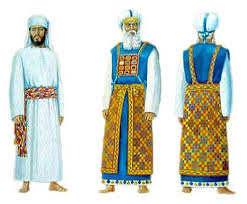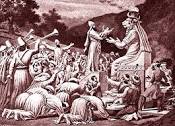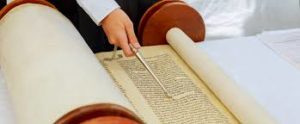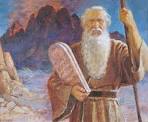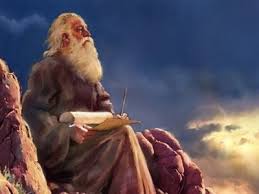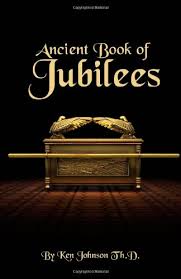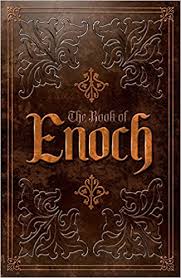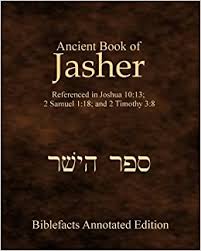Greetings Fellow Saints! Today is the 30th day of the 2nd Biblical Month and the 41st Day of the Counting of the Omer. May this great day of preparation be of most blessing to you and your family. My Torah studies today took me to a most profound place in the Children...
Messianics Engaged in Political and Social Activism
Messianics Engaged in Political and Social Activism
Messianics Engaged in Political and Social Activism
A speaker at a recent prophecy conference denounced apathy in the body of Christ and demanded Christians wake-up from their apathy and engage in political and social activism, so to speak. Given the mixed Faith Communities represented at this conference, I found myself questioning whether Messianics should be engaged in political and social activism.
Have we been called to take social or political fight, so to speak, to the streets of our society?
Who Do We Belong To?
You cannot understand what you’re supposed to do—what you’ve been called to do–if you do not understand or recognize:
- –Who you are?
- –What your purpose is?
- –What the mission and goal is?
Otherwise, anything we engage in outside that calling and identity becomes our personal call.
Who determines what we’ve been called to do? I guess it depends on who we belong to. Who then do we belong to?
If we are Torah Observant Believers in Yeshua Messiah, then we ultimately belong to the Creator of the Universe.
If We Belong to the Creator Then…
We are not our own—we were purchased with a price:
–What? Know ye not that your body is the temple of the Holy Ghost which is in you, which ye have of God, and ye are not your own? For ye are bought with a price: therefore glorify God in your body, and in your spirit, which are God’s (1 Cor. 6:19,20).
We are children of the Most High God (Yehovah). The Creator’s children are Israel. Israel was chosen of all the nation peoples of the world to be Yah’s children. Father chose Israel not because they were anything special in the earth:
Yahweh set His heart on you and chose you not because you were the most numerous of all peoples—for indeed you were the smallest of all, but because He loved you and meant to keep the oath which He swore to your ancestors: that was why Yahweh brought you out with His mighty hand and redeemed you from the place of slave-labour, from the power of Pharaoh king of Egypt (Deut. 7:7,8; NJB).
The Creator’s Plan For His People Israel
Father always intended, in addition to His chosen people being His beloved children, that be His priests before the nation peoples of this world:
“So now, if you are really prepared to obey me and keep my covenant, you, out of all peoples, shall be my personal possession, for the whole world is mine. For me you shall be a kingdom of priests; a holy nation…” (Exo. 19:5,6)
A Priestly Pedigree
The Hebrews at Sinai failed to keep the Sinai Covenant (the conditional covenant):
“If you will pay careful attention to what I say and keep my covenant, then you will be my own treasure from among all the peoples, for all the earth is mine; and you will be a kingdom of cohanim (i.e., priests) for me, a nation set apart (holy)…”(Exo. 19:5, 6; CJB).
In reference to the golden calf incident (Exo. 32:24):
“They did not keep God’s covenant, they refused to follow His Law” (Psm. 78:10; NJB).
The Creator’s Plan for Israel Has Never Ceased
Despite the breaking of the covenant by the Hebrews, Father’s original plan has never ceased to be in play. He still intends to make His people a kingdom of priests to the people nations of this world:
“But ye shall be named the Priests of Yehovah: men shall call you the Ministers of our God: ye shall eat the riches of the Gentiles and in their glory shall ye boast yourselves” (Isa. 61:6; KJV).
Gentiles Grafted-In To The Commonwealth of Israel
Most of us are not of clear, direct Israeli descent.
The plan of the Father included adding to Israel the nation peoples of this world—Gentiles:
Now suppose that some branches were broken off, and you are wild olive, grafted among the rest to share with the others the rich sap of the olive tree (Rom. 11:17; cf. Mat. 21:43).
Our engrafted state then comes with all the responsibilities, pedigrees, privileges and benefits enjoyed by our forefather Hebrews.
Contrary to conventional Christian thinking, engrafted Gentiles have NOT replaced the Hebrews! Engrafted Gentiles have been adopted into the Family of Yehovah!
Believers’ Identity and Purpose Revealed
As an engrafted people, we have received Israel’s identity and pedigree as priests of the Most High God to the nation peoples of this world. We are priests of Yehovah. Our High Priest is none other than Yeshua HaMashiyach.
What is a Priest and What Does a Priest Do?
The Levitical Priesthood serves as a precursor of what a Priest of Yehovah is to be like:
–Levitical Priests served as an example of righteous living to the people of the nation. These were held to a higher standard of behavior in comparison to the non-priestly Hebrews.
–Levitical Priests served Yehovah exclusively—24/7.
–Levitical Priests held no inheritance or any real property. Father was their inheritance (Num. 18:20-24; 26:62; Deu. 18:2).
- The tithes, offerings and sacrifices brought by the people provided the Levitical Priests their sustenance.
–These did not only work in the sanctuary and temple and affect atonement and serve as intermediaries before Yehovah and the nations, but served as the guardians of Torah.
- These were expected to rightly divide and disseminate the knowledge of Torah to the people:
“For the lips of a priest should preserve knowledge, and men should seek instruction from his mouth; for he is the messenger of Yehovah Sabaoth” (Mal. 2:7; NASB).
- The Priests had to be of Levi lineage and only the sons of Aaron served in the sanctuary and temple.
–Lineage dictated whether you were a priest or not.
- The High Priest was appointed by Yehovah (Lev. 8). Aaron, brother and spokesman for Moshe. The High Priest oversaw the entire Levitical Priesthood and He alone entered the Holy of Holies once each year and made atonement for the nation.
- The Levitical Priests were responsible for the sanctuary and worship service. Anything that goes wrong with either the sanctuary or the worship services, the priests were held accountable.
- The Levitical Priests served Yehovah conjointly with one another: certain priests were assigned to the sanctuary proper (i.e., the direct descendants of Aaron) while other Levites were assigned to assist the sanctuary priests in their duties.
- The Levitical Priests were to differentiate between that which is holy and unholy; between that which is clean and unclean (cf. Eze. 44:23).
The Passing of the Levitical Priesthood
The Levitical Priesthood fell into disrepair as a result of sin and corruption. These despised (i.e., made light of; showed contempt for; disdain for) the Name of Yehovah through their blatant violations of Torah as it related to their sanctuary responsibilities (Mal. 1:6,7).
The once holy priesthood became an embarrassment to the nation of Israel and appeared pathetic before Yehovah (Mal. 2:1-4).
The priesthood never recovered from its corruption and downfall: priestly positions were purchased, sold and traded; Torah was all but replaced with tradition and man made laws.
The Priesthood Today
With the destruction of the Temple in 68-70 C.E., the Levitical Priesthood faded away and has been replaced with the Melchizedekian Priesthood. Our High Priest is Yahoshua HaMashiyach—High Priest after the order of the Melchizedekian Priesthood (Heb. 2:17; 5:10; 6:20). His earthly ministry brought permanent propitiation (i.e., reconciliation) for us.
Having completed His work here on earth, our High Priest now serves in the heavenly Mishchan (i.e., Temple)—in service not just to His Father, but to us by interceding on our behalf before the Creator day and night (Heb. 7:25).
If our Master walks 24/7 in His role as the eternal Cohen Gadol (High Priest) today what role are we to walk in? Yes, we are disciples of Yeshua. A disciple is a follower and student of their Master. As a disciple of Yeshua, we are being taught (i.e., trained) to be Priests of Yehovah. [See my post entitled: “Yeshua Messiah (aka Jesus Christ) As Our Apostle and High Priest.“]
Thus, our ultimate identity and purpose is that of a priest of Yehovah.
Yeshua HaMashiyach revealed to the Apostle John (i.e., Yochanan):
“And has made us a Kingdom of Priests to serve His God and Father (speaking of Yeshua)—to Him, then, be glory and power for ever and ever…and made them a line of kings and priests for God, to rule the world” (Rev. 1:6; 5:10).
Our Modern Day Role and Purpose as Priests in the Kingdom
As modern day priests in the Kingdom of Yehovah our Elohim, we embody many of the traits and tasks of the now defunct Levitical Priesthood of old:
- We are keepers and disseminators of the Word of Truth.
- We are responsible for carrying out proper worship of Father in these temples of ours (1 Cor. 6:19).
- We are salt and light to the nations of the world (Matt. 5:13, 14).
- We are to show the world the difference between that which is holy and unholy; clean and unclean.
It then becomes imperative that recognize who and what we are and then walk powerfully in that Truth 24/7.
Like the Levitical Priests of old, our lineage–this time not biological but spiritual lineage–predetermines our role in the Kingdom.
Father Chose Us—”He predestined us to adoption as sons through Yeshua Messiah to Himself, according to the good pleasure of His will…we have obtained an inheritance, having been predestined according to His purpose who works all things after the counsel of His will” (Eph. 1:15, 11; NASB).
[See my post entitled: “Our Calling to be Priests of Yehovah is not a Trivial Matter.”]
Peter on Messianics’ Identity as Priests
Peter writes to the scattered/dispersed Messianics residing in Pontus, Galatia, Cappadocia, Asia and Bithynia (all located in present day Turkey) in his 2nd general epistle (circa 60’s C.E.), admonishing them of the following:
- Be sober-minded (1:13).
- Focus on the hope that was brought to them (1:13).
- Be obedient (1:14).
- Abandon their former lives and practices and behaviors (1:14).
- Be holy as our God is holy (1:16; cf. Lev. 11:44; 19:2; 11:45; 20:7).
- This is Torah.
- We become holy by being obedient to Father’s instructions.
- Master Yahoshua showed and taught us how to live holy and righteous lives.
- Fear/ reverence Yehovah (1:17; cf. Matt. 6:9; 2 Cor. 7:1; Heb. 12:28).
- Bear in mind that they were redeemed by the precious blood of the Lamb (1:18; 19).
- The atonement required in order to serve Yah.
- Fervently love one another (1:22).
-
A commandment given to us by Master Yahoshua: “A new commandment I give to you, that you love one another, even as I have loved you, that you also love one another” (Joh. 13:34; NASB).
-
- Put aside malice, deceit, hypocrisy, envy and slander (2:1).
- Long for the Word so that they may grow in their delivered life (2:2).
- Then Kefa expounds on his readers’ purpose as a “spiritual house of cohanim, holy (i.e., set apart for Yah) to offer spiritual sacrifices acceptable to Him through Yeshua Messiah (2:5, 9; cf. Rev. 1:6; Isa. 61:6).
- Paul (Shaul) instructed the Roman Assembly of Messianics that they present their bodies as living sacrifices, holy, acceptable unto Yah, which is their reasonable service (Rom. 12:1).
- The writer of Hebrews defined what those sacrifices must be: praises to Yehovah continually, which is the fruit of our lips giving thanks to His Name (Heb. 13:15).
- As cohanim (i.e., priests) unto Yehovah, our acceptable sacrifices consists of a many things that bear semblance to those sacrifices offered by the Levitical Priests of old:
- Praises unto Yehovah—loving Yehovah through worship.
- Songs and Psalms unto Yehovah—loving Yehovah through worship.
- Admonishments and meditations and intercessions—love for others—serving the Body.
- Preaching and teaching the Word—loving Yah through obedience and loving others through teaching Truth.
- Doing good for others—loving others through sacrifice of our resources, time and talents.
- Kefa (Peter) reiterates that his readers were a chosen race (2:9).
- These Father selected to be His special possession from all the nation peoples of this world as He had chosen the descendants of Abraham (Deu. 10:15).
- Kefa’s readers are indeed of a royal priesthood (2:9), which I is an obvious drawback to Exodus 19:6 where Father declared as part of the Sinai Covenant: “Ye shall be unto Me a kingdom of priests and an holy nation…”
- This was a foreshadowing of the even greater things to come for them in the Kingdom of Yehovah: “He (speaking of Yeshua) hath made us kings and priests unto Yah the Father…He has made us unto our God kings and priests: and we shall reign on the earth” (Rev. 1:6; 5:10; KJV).
- Isaiah prophesied of this in his day when speaking that there is coming a day when Israel would be named Priests of Yehovah; that men shall call them the Ministers of Yah (Isa. 61:6).
- To fully restored Israel Jeremiah writes: “To you the nations will come from the ends of the earth and say, ‘Our fathers have inherited nothing but falsehood (i.e., lies), futility and things of no profit” (Jer. 16:19; NASB).
- Zechariah writing about a restored Israel prophesies: “In those days 10 men from all the nations will grasp the garment of a Jew (i.e., their tzitzits) saying, ‘Let us go with you, for we have heard that Yah is with you” (Zech. 8:23; NASB).
- Peter declares that his readers, being Yah’s special possession with favored status; a peculiar people; a special people unto Him, must proclaim the excellencies (i.e., Gr.=aretes=the praises; the virtues) of the One who called them out of darkness into His marvelous light (2:9; cf. Tit. 2:14; Exo. 19:5; Deu. 4:20; 14:2).
Many believers feel compelled to seek after political or social changes because of their Faith.
Many believer contend that Yeshua and the Apostles were the consummate political and social activists of their day. And to some extent that were, but not in the sense of what we know to be 21st century political and social activism. An activist today is a person who campaigns to bring about political or social change.
Yeshua and the apostles were focused on furthering the Gospel Message and contending for the Faith. In the midst of doing this, they were often confronted by social and political entities opposed to their work. However, Yeshua and the apostles did not seek or “campaign” to bring about political or social change.
What Kind of Activism Should Messianics Engage In?
Scripture does not in my opinion provide room for Messianics to become social and political activists–at least not in the conventional sense of the title activist.
Activism that is based upon the tenets of Scripture can seem to be a noble thing, but is that what believers have truly been called to be and to do?
Many condemn those who opt to stick with the roles, tasks and purpose of Messianics/disciples of Yeshua as stipulated in Scripture.
Paul (Shaul) wrote to Timothy:
“No soldier on duty gets involved with civilian affairs, since he has to please his commanding officer” (2 Tim. 2:4; CJB).
Since Scripture clearly points to us being priests of Yehovah, in fulfillment of Father’s original purpose for His people, we should consider what Scripture has to say about priests once again. Of the priests, the Prophet Malachi wrote:
“The priest’s lips out to safeguard knowledge; his mouth is where the law should be sought, since he is Yahweh Sabaoth’s messenger” (Mal. 2:7; NJB).
Bringing people to a saving knowledge of Yeshua Messiah is not political or social activism. Yet many contend that it is just as important to bring about political and social change as it is to do that which Yeshua instructed us to do. Some feel bringing about social and political change is what Yeshua told us to do. Yet, Scripture offers no such support for such a claim.
Again, it is imperative that we recognize who and what we are before we start running off and doing things that we’ve not been told to do. Scripture clearly points to us being/becoming priests. We saw earlier in this post that priests have defined duties (when compared to the original Levitical Priesthood–a foreshadow of what we are to become today) and they do not involve themselves in the affairs of this world—regardless how terrible those affairs may be and how they violate Father’s laws.
The Problem With Messianic Engaging in Political and Social Activism
No group of Messianics/Hebrew Rooters can legislate morality in this world, no matter how hard they try. Morality comes only with repentance and a changed heart. We saw this clearly embodied throughout the history of the Hebrews as recorded in Scripture.
Overturning laws and legislating morality will not change anything in society (ex. Roe vs. Wade and abortions; homosexuality; etc.).
Activism (at least on the part of Messianics) assumes that the world around them accepts the sovereignty of Yehovah over their lives; accepts the Bible as containing the Word of Yah which they should obey; and that it is willing to consider turning to Yeshua in the pardon of their sins and to establish a substantive relationship with the Creator of the Universe.
Unfortunately, the world is currently being run by hasatan, along with all his systems, governments, technologies, etc. (Eph. 2:1, 2):
“And you hath He quickened who were dead in trespasses and sins; wherein in time past ye walked according to the course of this world, according to the prince of the power of the air, the spirit that now worketh in the children of disobedience.”
Recall the incident in the wilderness between hasatan and Master:
“The devil taketh Him up into an exceeding high mountain, and sheweth Him all the kingdoms of the world, and the glory of them; and saith unto Him, ‘All these things will I give thee, if thou wilt fall down and worship me’” (Matt. 4:8,9; KJV).
Instead of Political and Social Activism, How About Spiritual Activism?
So if some feel they are called to be social and political activists, I believe they must understand what True Activism is in the sight of Yeshua our Master: physical (conventional) versus spiritual activism?
Shaul brilliant wrote the following which must stands as the plumb line that defines the type of activism we must engage in as Torah Observant Believers in Yeshua Messiah:
12 For we wrestle not against flesh and blood, but against principalities, against powers, against the rulers of the darkness of this world, against spiritual wickedness in high places.
13 Wherefore take unto you the whole armour of God, that ye may be able to withstand in the evil day, and having done all, to stand.
(Eph 6:12-13 KJV)
The activism Messianics are tasked to engage in is NOT physical and not in the face of men—but waged “eating carpet” before Father and pleading the blood of Yeshua on those souls who are affected and petitioning Father for forgiveness and intervention.
Let’s reason this thing out some here: Does being a Messianic demand we then confront the children of disobedience and the powers of hasatan’s world system and through rhetoric; demonstrations of anger (righteous indignation); protests; running for government office; participating in the political process; etc? Where does Scripture remotely suggests we do this? Or is there something else that Master has instructed us to do while He is away?
Messianics Called to Engage in Spiritual Activism
Master gave Messianics a great amount of work to do while He was away and while we await His return. Yet none of the things He gave us to do has anything to do with political and social activism.
Yahoshua instructed us to “occupy till He comes” (Luk. 19:13).
Contrary to what many believe, occupy here (Gr.=pragmateuomai) means to carry on the business of a banker or a trader. Our occupation is not militaristic in the conventional wisdom sense. The Scriptural meaning of occupy is consistent with the context in which it was used in the parable of the 10-pounds recorded in Luke 19:1-27, in addition to the Parable of the Talents recorded in Matthew 25:14-30 I encourage you to take the time and read these passages when you have the time.
Thus, armed with a Scriptural understanding of what it means to occupy till Master returns, would it be safe to say then that our occupying more accurately involves our helping to usher in the Kingdom of Yehovah on this planet through our preaching and teaching of the Word of Yehovah; our righteous and obedient living; and our steadfast and powerful intercessory prayers and fasting regimen? Waging spiritual warfare?
Yeshua’s Style of Activism
- The parable of the talents in Matthew 25:14-30 teach us to make proper use of the time, resources and talents we’ve been given to declare the Gospel of the Kingdom to this corrupt and dying world.
- Master confirmed that the two Great Commandments are loving Father with our whole being and loving one another as we love ourselves (Matt. 22:34-40).
- Master explicitly instructed that we go into all the world and make for Him disciples; teaching those new disciples that which He taught us (Matt. 28:16-20).
- Master sent out 70-disciples throughout Judea to declare the Kingdom of Yehovah and deliver the good news of the Gospel; heal the sick; raise the dead; cast out demons; bring hope to the lost and those in despair; give freely to all who would receive (Luk. 10).
- Master declared that the harvest was plentiful but the laborers were few. The harvest being those who would answer the call for Messianic discipleship (Matt. 9:35-38).
- Pick up our stakes and follow—imitate—obey Yeshua HaMashiyach. Become like Him and do that which He taught and modeled for us (Luk. 9:23).
- Follow in Master’s footsteps (1 Pet. 2:21).
- Seek the Kingdom of Yehovah and His Righteousness (Matt. 6:33).
- Even our Master had His established purpose and mission which He stated was “…to the lost sheep of the house of Israel” (Matt. 15:23). We see here in this particular story a prophetic shadow picture whereby a Gentile woman–a Canaanite woman to be exact–sought help from Yahoshua. And even within that paradigm of people, Master had a defined purpose: “For the Son of Man is come to save that which was lost (Matt. 18:11; 9:12; Luk. 19:10, 56; 1 Tim. 1:15; Joh. 5:27; 10:10; 12:47)
We must above all contend for the True Faith Once Delivered
Call to Action
Political and Social Activism may appear to be noble endeavors when it lines up with the basic tenets of Scripture. However, a Messianic’s activism is not founded in flesh and blood; in the streets; in your face; blocking abortion clinics; protesting; attending rally’s; being a nuisance; running for office; etc. The Messianic’s activism is found in his/her doing that which they’ve been instructed to do by our Master Yeshua Messiah.
Additionally, Messianics must constantly keep in the forefront of their minds and hearts that their struggle and contending for the Faith is not a struggle against flesh and blood, which political and social activism is. Theirs is spiritual struggle that can only be waged through spiritual means. Paul wrote to the Ephesian Messianics:
12 For we wrestle not against flesh and blood, but against principalities, against powers, against the rulers of the darkness of this world, against spiritual wickedness in high places. 13 Wherefore take unto you the whole armour of God, that ye may be able to withstand in the evil day, and having done all, to stand. (Eph 6:12-13 KJV)
I would only say this: If a Netzarim feels called to be a social and political activist, it behooves them to make sure that they are firmly in the will of Yehovah and that they are properly prayed up and fasted up and trained up to do so. Otherwise, they risk compromising their Faith and witness, in one form or another.
In Conclusion
If Messianics/Hebrew Rooters:
- Properly contend for the Faith.
- Teach our children the Word of Truth.
- Live peaceably with one another.
- Care for the less fortunate among the members of the Messianic Community.
- Pray for the peach of Jerusalem.
- Make disciples for Yeshua Messiah.
- Obey Torah to the absolute best extent of our ability through the guidance and power of the Ruach haKodesh.
- Take up our stakes and follow/imitate/obey Yeshua daily.
- Be prayer warriors, praying continually and without ceasing.
If we were to do all these things–everyone believer giving it their all–then we would not have to resort to political and social activism to bring about change in the world; at least not in our community.
Faithfully Yours.

